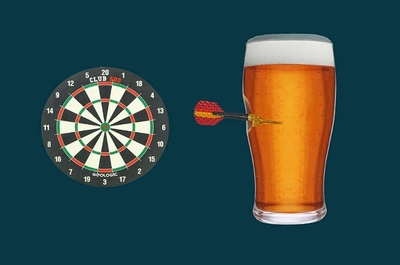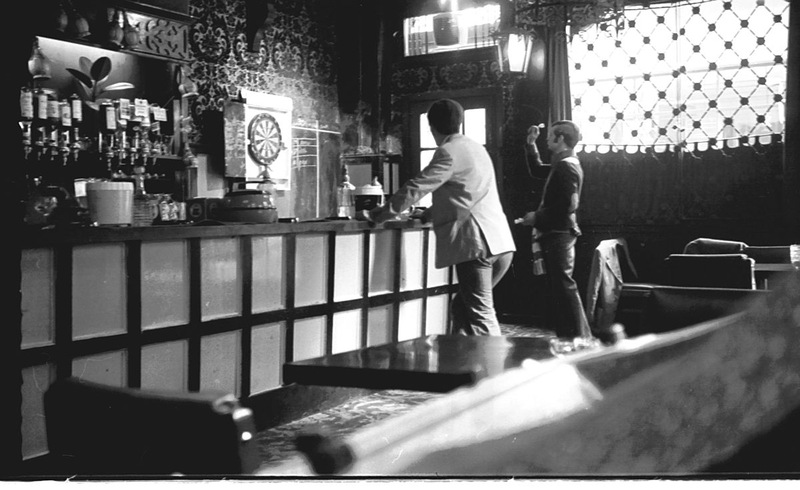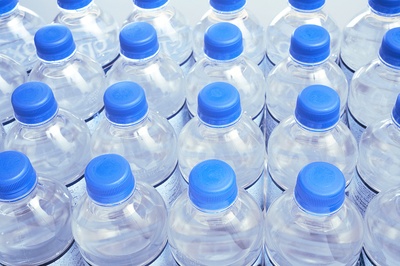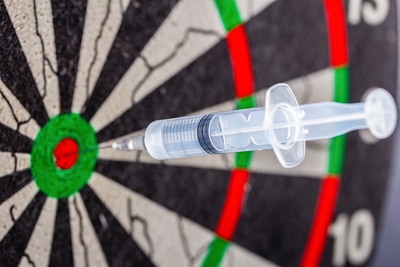 There are very few sports where you would even need to ask the question if players can drink alcohol during a match. In sports such as football or rugby, there simply is not time to crack open a tinny and sip on a cold one while the ball whizzes by. Even if players could have a quick one while a teammate is receiving medical treatment though, it is hard to come up with a reason why they would. In sports with any cardiovascular and reaction-time element, any meaningful consumption of alcohol would only hinder performance.
There are very few sports where you would even need to ask the question if players can drink alcohol during a match. In sports such as football or rugby, there simply is not time to crack open a tinny and sip on a cold one while the ball whizzes by. Even if players could have a quick one while a teammate is receiving medical treatment though, it is hard to come up with a reason why they would. In sports with any cardiovascular and reaction-time element, any meaningful consumption of alcohol would only hinder performance.
The relationship between alcohol and darts however is more unique, after all it is a game routinely played in pubs across the country, with most amateur leagues and competitions being held in drinking venues. Many amateur players enjoy having a drink in their free time and there is no need to put this aside during a darts match. For professionals however, they do not have such freedom to drink, so you will never see on your TV screen a player with a dart in one hand and pint glass in the other – despite the outdated stereotype.
Background

For many years, darts players were free to drink alcohol during matches, at any time they pleased. Many chose to do so, often also choosing to chain smoke cigarettes. Who says darts isn’t a sport? Drinking and indeed smoking was so strongly associated with professional darts that the behaviour of players formed a sketch on comedy programme, Not the Nine O’Clock News, in 1980.
Check it out below:
While the idea of a sportsperson drinking during a match, in full view of everyone, might seem rather strange today, you cannot underestimate the connection darts has to pub culture going back decades. Many players and indeed fans acquired their love for the sport by playing and watching it at the pub, a natural home of alcohol. There are few other places where you can play darts but it has been commonly found in drinking establishments since the early 20th century.
The harmonious relationship between drinking and top-level darts came to an abrupt end in 1989. At the time, the then governing body for darts, the British Darts Organisation (BDO) were hugely concerned about the significant reduction in TV coverage. Just a year prior, the BBC announced they would drop nearly all darts coverage, only retaining the World Championships. ITV also lost their interest in darts, stating that they would no longer be showing any darts tournaments once their current commitments were over.
By 1989 therefore, the only televised darts tournament was the World Championship, and in an attempt to improve the game’s image, the BDO banned all alcohol on stage. This had little impact with sponsors though, with few showing any more eagerness to invest into a sport that had suffered a huge decline in coverage from its height during the early and mid 1980s.
Nevertheless the decision was not reversed, putting an end to the days of players necking a pint of John Smith’s on stage.
Current Rules
 We have established that alcohol during matches has been banned since 1989 and the rules were not relaxed when the World Darts Council (WDC) was formed following dissatisfaction with the BDO. Even the WDC, now the Professional Darts Corporation (PDC), agreed that alcohol consumption on stage does not give the best impression to sponsors. Nor does it project an image of top darts personnel being consummate professionals and role models.
We have established that alcohol during matches has been banned since 1989 and the rules were not relaxed when the World Darts Council (WDC) was formed following dissatisfaction with the BDO. Even the WDC, now the Professional Darts Corporation (PDC), agreed that alcohol consumption on stage does not give the best impression to sponsors. Nor does it project an image of top darts personnel being consummate professionals and role models.
In modern darts, you will instead only find players drinking iced water at the oche. Not only does this give the game a more professional feel, compared to pints of booze, but it keeps players hydrated. While they are not moving around much, darts arenas do tend to get very warm due to the tightly packed crowds. During some matches, temperatures have been known to exceed 38 degrees so any visible sweat might not be caused by the pressure or a lack of fitness.
What about players having a cheeky drink during the interval? Well, most professional matches do not have an interval but for those that do, this does not provide an opportunity to drink either. Although it would be out of view of the cameras, the sport is keen to distance itself from drinking and not risk having a player become increasingly intoxicated as the match continues.
Okay, so there is no opportunity to drink alcohol during a match or during breaks, but what about before a match? Well, this is not really something the World Darts Federation (WDF) can police, particularly if a player is not even on the premises. After all, alcohol is no longer a banned substance. As part of anti-doping regulations, darts players are tested for various substances but finding alcohol in their system would not land them in any sort of trouble.
Alcohol used to be on the World Anti-Doping Agency’s list of prohibited substances but it was removed in 2018. This does not, however, prevent certain sports from banning alcohol if they choose to. Archery, for instance, continued the ban on alcohol even when WADA dropped it from their list, for fairly obvious reasons of safety. As such, World Archery continues to test for alcohol at international events. Darts could implement the same rules if they wish, but so far they have resisted any calls to crackdown on drinking before matches.
Many people who play darts or similar sports such as pool and snooker will know that there is a feeling that they play best after a pint or two. These sports are typically slow paced, meaning that pressure is more keenly felt. As such, it is reasonable to see that the benefits of relaxation and possibly even a small confidence boost might outweigh the small physical impairments when alcohol is consumed at low levels. Whether any professionals adopt this approach we do not know, although in an increasingly professional era we suspect it is becoming less typical.
The Future of Darts and Alcohol

Even when alcohol was banned during matches, some players drank heavy amounts before matches and in general, to the point of having an addiction. Andy Fordham said before playing at Lakeside for the first time, he drank a ‘shedload’. Because of this, he felt like he needed to drink a similar amount every time he played. This could be as much as a full hip flask of brandy and a case of Holsten Pils! Sadly Fordham died in 2021 at the age of just 59 so it is easy to see why few darts players would willingly choose this approach.
Of course, not all players are so open about their relationship with alcohol but the extent of the drinking culture is generally known among players. Former Lakeside world champion Jelle Klaasen alleged that only two or three of the top 32 players at the time did not drink before a match. Fellow Dutch player, Co Stompe, was also critical of how much drinking was a part of the sport. He said that he used to drink himself while playing and when cutting it out as a test, he ended up “shaking like a leaf”, struggling to keep his concentration and focus.
Stompe likened alcohol consumption pre-game to a form of doping, saying that it makes players calmer and keeps their nerves under control. With this a big advantage in a sport like darts, there is a quite compelling argument to be made for the ban on alcohol pre-game. Such a rule could not be implemented immediately however, there would need to be a gradual transition in order to prevent uproar among players. It would, however, make the sport ‘fairer’ and reduce the number of former players struck down with serious medical problems linked to drinking. Welfare of darts players is a concern and it is possible that banning alcohol pre-game would help address this.
What Does The Science Say?
 There are many players that will tell you alcohol helps settle their nerves during a game but does necking some pre-match pints really aid performance? One expert, quoted in the BBC, said that low levels of alcohol can improve performance of tasks as it reduces anxiety and nervousness. Used sporadically, this does not cause much of a problem but given players have so many matches, they can end up having a drink on a very regular basis. From there, of course, it is all too easy to slip into dependency, especially in a sport and culture so closely linked with drinking.
There are many players that will tell you alcohol helps settle their nerves during a game but does necking some pre-match pints really aid performance? One expert, quoted in the BBC, said that low levels of alcohol can improve performance of tasks as it reduces anxiety and nervousness. Used sporadically, this does not cause much of a problem but given players have so many matches, they can end up having a drink on a very regular basis. From there, of course, it is all too easy to slip into dependency, especially in a sport and culture so closely linked with drinking.
One of the senior clinical researches quoted in the article stated that a problem is “the more you drink, the more tolerance to alcohol increases”. This results in players needing to drink more and more each game in order to stay relaxed. By believing you require several drinks in order to stay calm, players also create a strong dependency on booze. It gets to the point where many players are so hooked they cannot play without it. Not only would going cold-turkey impact their self-belief but it would create physical symptoms like tremors, anxiety and increased sweating.
For many, while reducing alcohol consumption will hurt at first, in the long run learning to manage their nerves without external substances will be of major benefit. This is something greater access to trainers, therapists and sports psychologists can provide, so darts bodies should look to invest heavily in these areas. Drinking in the crowd, of course, is another matter entirely, for good or for bad.
